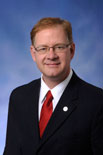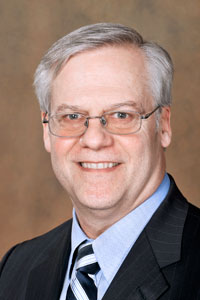 It took nearly 20 hours of debate in two committees. But Common Core State Standards finally got a passing grade from the House, Thursday, September 26th, 2013.
It took nearly 20 hours of debate in two committees. But Common Core State Standards finally got a passing grade from the House, Thursday, September 26th, 2013.
Our State Representative Greg MacMaster voted NO!!!
Members voted 85-21 for HCR 11, the concurrent resolution that would allow the state to continue spending money to implement the standards while instituting a laundry list of conditions for the implementation.
The vote came after a two-hour Education Committee meeting this morning, during which Rep. Tom HOOKER (R-Byron Center) won an amendment to the now-1,400-word resolution that would have required the Governor, lawmakers and local school officials to take assessments based on the standards.
Then, the amendment said, the result or refusal to take the tests “shall be published by state and local media sources.”
“I think it’s important for legislators, superintendents and boards to know what’s in the tests,” Hooker explained this afternoon. He added, “If they aren’t able to recognize it by taking the tests, then there are some serious problems.”
Although House Education Chairwoman Lisa Posthumus LYONS (R-Alto) voted against Hooker’s amendment, it still passed 9-8. HCR 11 itself passed 11-5 out of committee this morning.
Later on the floor, Rep. Bill ROGERS (R-Brighton) won his own amendment to remove the language requiring elected officials to take the assessments from the resolution.
Rogers, who chairs the House Appropriations School Aid Subcommittee, said he had a simple question about the testing requirement: How would the state afford to test lawmakers and all local school board members?
“I have no idea what it costs,” Rogers said this afternoon. “But I know it’s going to cost something.”
That cost would likely cut into current education funding levels that are already a topic of hot debate in Lansing, Rogers noted.
Asked how he thought lawmakers would do on the testing, Rogers paused then said, “Probably, very poorly.”
“I frequently hear how kids are coming home and parents can’t help them with their homework,” Rogers added. “So you think we’re really going to just walk in and pass this thing?”
Katie CAREY, press secretary for the House Democrats, responded jokingly that Rogers was being a “good fiscal conservative” when it came to his focus on the costs of the testing.
“Why couldn’t this come out of the Legislature’s budget?” Carey asked, however.
Before Rogers won his amendments, multiple lawmakers privately questioned this afternoon how they would be able to succeed on testing concerning subjects they hadn’t studied in decades. Another lawmaker could be seen jokingly pumping his fist on the House floor when Rogers’ amendment was adopted.
Outside of the testing debate, the Common Core resolution, which had been in the works for months, easily passed the House today.
The 21 “no” votes — all Republican — were far short of what would have been needed to kill the resolution, sponsored by Rep. Tim KELLY (R-Saginaw Twp.).
The resolution was the result of a special subcommittee chaired by Kelly over the summer. The subcommittee took about 15 hours testimony on Common Core before Kelly released his resolution earlier this week.
Those 15 hours were on top of two hours of testimony the House Education Committee took earlier this year and two more hours the committee took before voting today.
Legislative action was needed because lawmakers put a pause on Common Core funding in the Fiscal Year 2014 budget.
Under the budget, the Michigan Department of Education won’t be able to spend money on implementing Common Core unless the Legislature casts an affirmative vote for the standards.
After all the work this summer, Kelly said he was pleased with the vote in the House today.
But while lawmakers added numerous conditions to the resolution to try to get more votes for the proposal, Kelly said he wasn’t sure whether any of the amendments lawmakers considered actually won additional votes.
Some of the lawmakers who wanted amendments ended up voting “no” anyways.
“If we would have polled this vote back in June, I think we would have seen similar results,” Kelly said.
Some of the conditions added to the resolution today focused on the Smarter Balanced Assessments connected to Common Core and the appropriateness of the standards for young children.
Rep. Theresa ABED (D-Grand Ledge) helped get language in the resolution that specified that local school boards can develop different standards related to geometry for high school students and to developmental standards for kindergarten through third-grade students.
Abed, who had voiced concerns about the developmental appropriateness of Common Core for young learners, ended up speaking out for HCR 11 on the floor today.
“We need to lift the pause button so our schools can proceed forward,” Abed said.
The resolution also features a provision that requires the State Board of Education and the Michigan Department of Education to issue a full report on student assessment options for Common Core. That report is due by Dec. 1.
Many lawmakers, like Rep. Tom MCMILLIN (R-Rochester Hills), have major concerns about the Smarter Balanced Assessments connected to Common Core. Currently, Michigan is in a multi-state consortium working on Smarter Balanced.
The problem, according to some lawmakers, is that if Michigan decides to alter its standards, the assessments, which will be developed for multiple states, may not reflect the Michigan-specific changes.
And if the testing decides how schools are rated and how teachers are evaluated, McMillin said today, “That will drive curriculum.”
McMillin, who’s been vocal about his opposition to Common Core, voted against HCR 11. Afterward, he said today’s events likely won’t be the last debate on Common Core in Michigan.
“In December, we’re going to get a review, and I think it’s going to be clear that Smarter Balanced is bad,” McMillin said. “And maybe, we’ll get out at that point.”
He added, “This isn’t over.”
HCR 11 now goes to the Senate for consideration.
Common Core: Where They Stood
The following Republicans voted NO on HCR 11 today:
Jon BUMSTEAD (R-Newaygo), Mike CALLTON (R-Nashville), Kevin COTTER (R-Mt. Pleasant), Kevin DALEY (R-Lum), Jeff FARRINGTON (R-Utica), AnthonyFORLINI (R-Harrison Twp.), RayFRANZ(R-Onekama), Bob GENETSKI (R-Saugatuck), Ken GOIKE (R-Ray Twp.), Hooker, Martin HOWRYLAK (R-Troy), Joel JOHNSON (R-Clare), KenKURTZ(R-Coldwater), Dan LAUWERS (R-Brockway), Tom LEONARD (R-DeWitt Twp.), Greg MACMASTER (R-Kewadin), Tom http://gophouse.org/representatives/southeast/mcmillin/MCMILLIN, Peter PETTALIA (R-Presque Isle), Phil POTVIN (R-Cadillac), BruceRENDON(R-Lake City) and Pat SOMERVILLE (R-New Boston).
House Speaker Jase BOLGER (R-Marshall) voted “yes” on HCR 11.
“Michigan parents deserve high expectations and accountability in our educational system so that all children can learn and succeed,” Bolger said in a press release today. “I commend the many representatives who dedicated countless hours to do their homework throughout the summer on this issue. The subcommittee’s and Education Committee’s work on this resolution will help ensure that children across Michigan can excel with a high-quality education regardless of where they live.”
Rep. Sam SINGH (D-East Lansing), who was the minority vice chairman for the Common Core Subcommittee, also praised today’s vote.
“Just a few months ago, Common Core was a divisive issue in Lansing,” Singh said in a press release. “But after taking time to listen to varying opinions and working together to craft a resolution, Republicans and Democrats came together to help our schools give kids the best education possible.”





